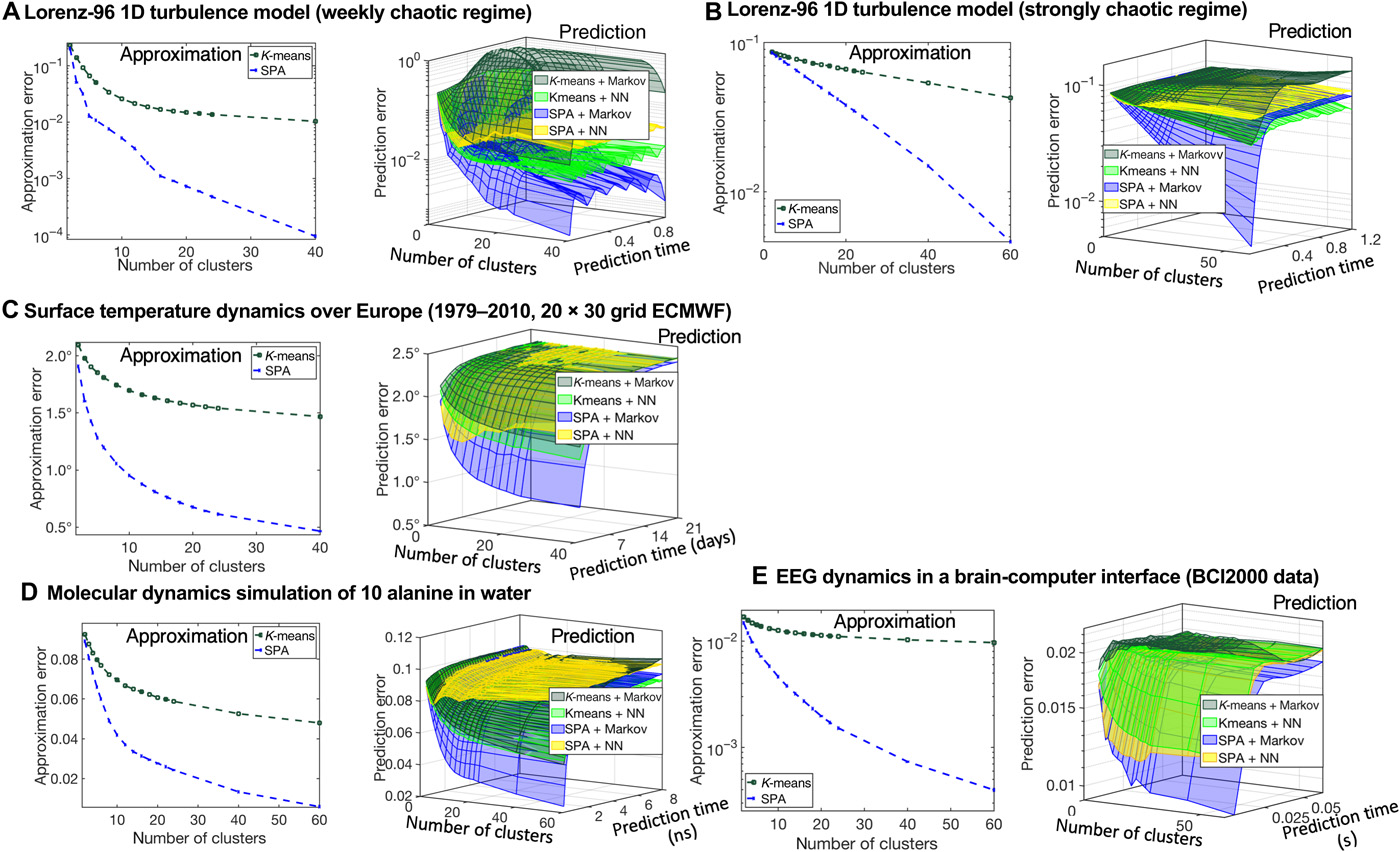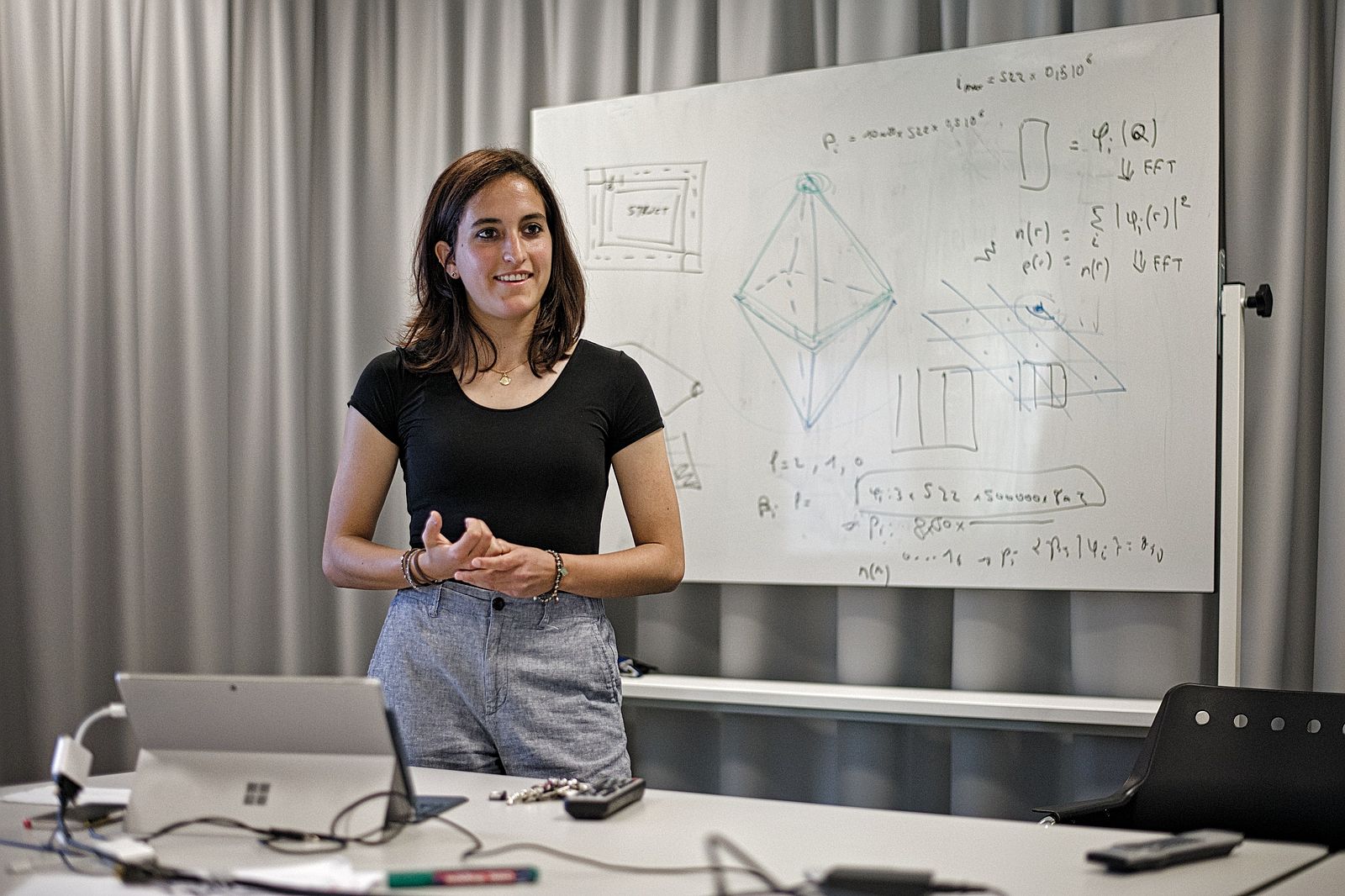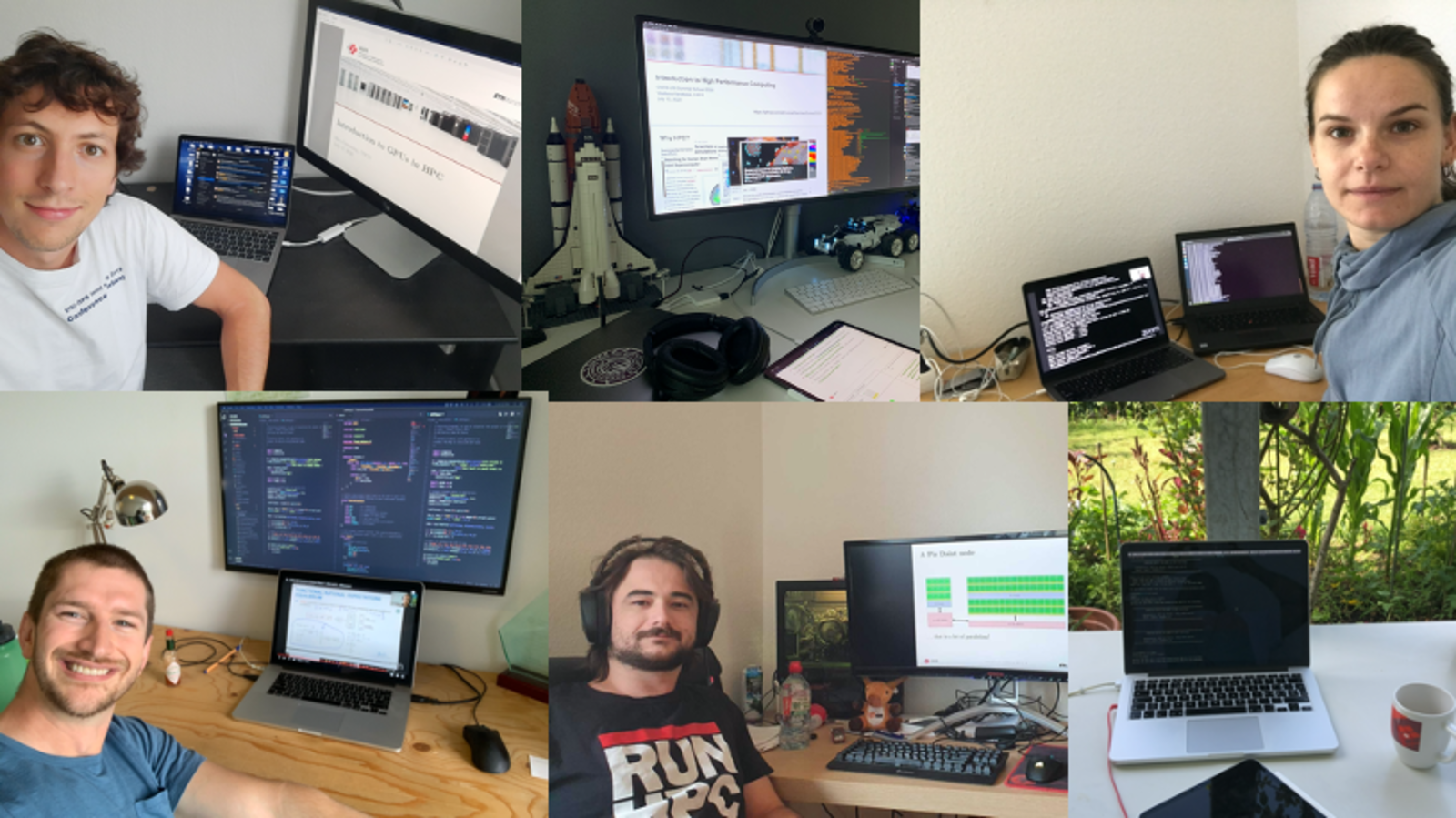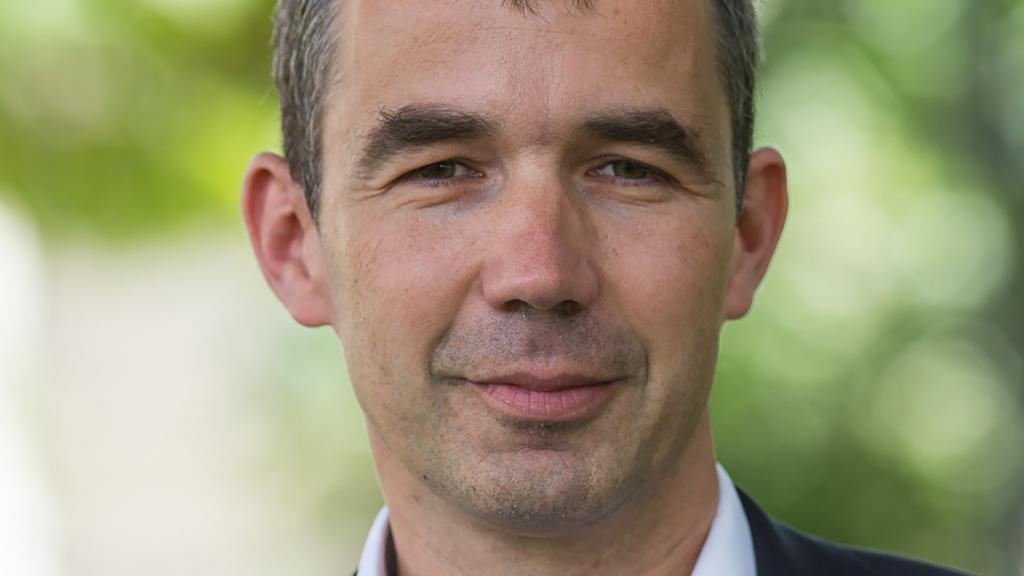News
The FAUSION team is ready for the ISC Student Cluster Competition
The ISC 2025 in Hamburg, taking place from 10 to 13 June, is one of the most prestigious international stages for promoting the use of high-performance computing (HPC). The conference aims to encourage international knowledge, innovation, and teamwork in this area, including a conference, an exhibition, and a Student Cluster Competition (SCC).
The SCC is a competition involving teams of Master's students from around the world, who are asked to tackle a series of complex challenges related to high-performance computing and data centre management. In addition to testing their technical skills in a dynamic and stimulating environment, participants have the opportunity to forge lasting friendships, expand their professional network and deepen their valuable technical knowledge.
The FAUSION team, with representatives from Friedrich-Alexander-Universität (FAU) and Università della Svizzera italiana (USI), is composed of six Master's students enrolled in the Master's programme in Computational Science at USI Faculty of Informatics. The team is led by student Jonah Holtmann (FAU/USI) and supported by PhD students Aditya Ujeniya (NHR@FAU) and Daniel Vega (CI/INF/USI).
Thanks to the generous sponsorship of MEGWARE, the team has access to three compute nodes equipped with four NVIDIA H200 GPUs each. Recently, the students had the opportunity to visit MEGWARE's headquarters in Chemnitz during a two-day visit that included an in-depth tour of the development centres and benchmarking clusters, as well as meetings with experts from various company departments.
Day two was packed with deep dives into energy-efficient architectures, exploring solutions to stay within power budgets while maximising performance. These insights are crucial as the students gear up for upcoming competitions.
The six members of the FAUSION team: Alberto, Georg, Tornike, Johannes, Nikita, Christoph
Open PhD Position at the Statistical Science Laboratory.
PhD position in Statistics/Machine Learning on spatio-temporal Hawkes processes and their applications.
Application Deadline: 28 February 2025.
We invite applications for a fully-funded Ph.D. position for conducting methodological research in the field of spatiotemporal point processes. Point processes such as Hawkes processes have been widely used to model events in various domains such as finance, epidemiology, social network analysis, and neuroscience. The meth- ods will be applied to real-world innovative datasets
The future student will be enrolled in the Ph.D. program in Computational Science at USI (gross annual salary: 48,000-51,000 CHF), supervised by Prof. Deborah Sulem and co-supervised by Prof. Xenia Miscouri- dou (University of Cyprus and Imperial College London).
Celebrating the First Graduates of EUMaster4HPC: A Pathway to a Future in High-Performance Computing
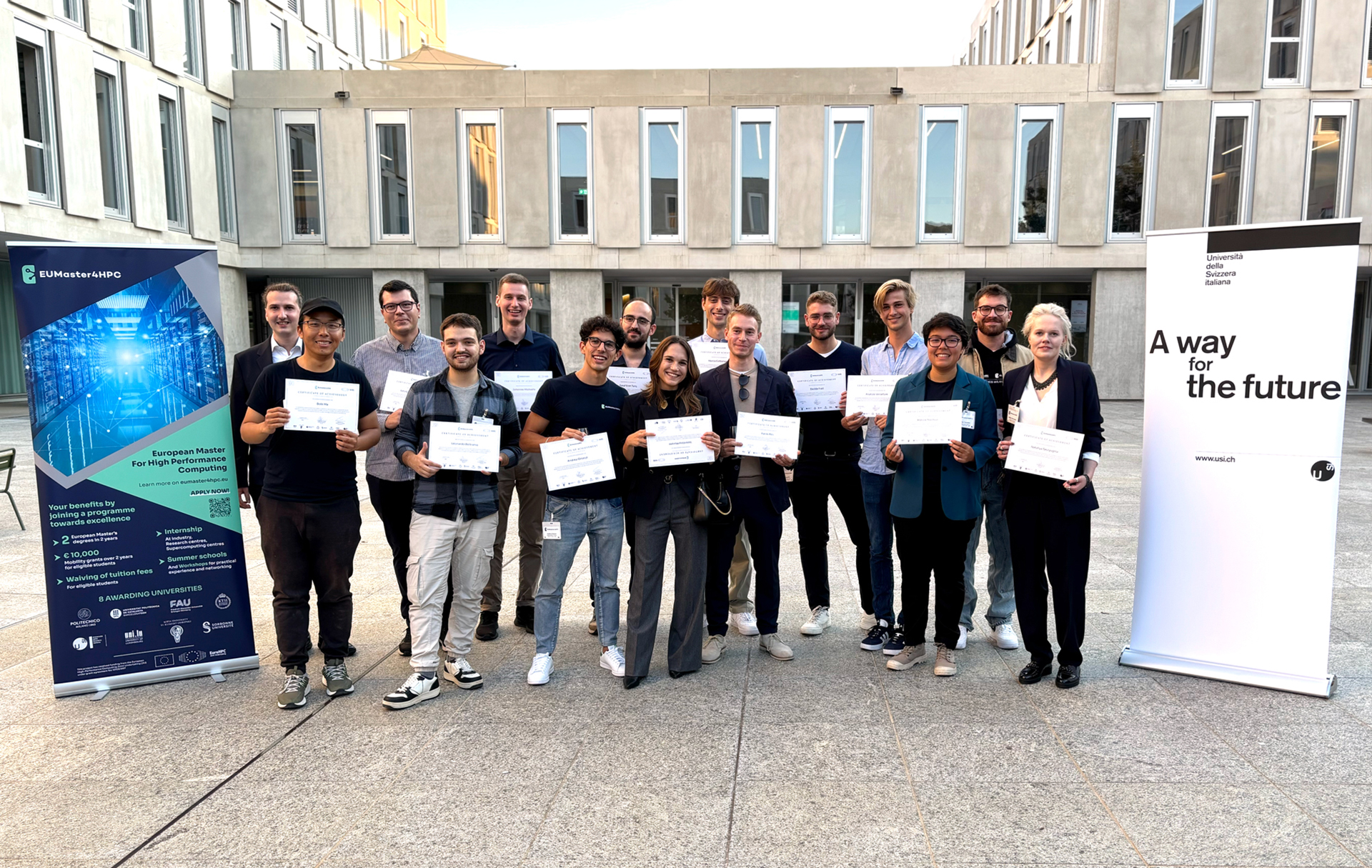
Outstanding paper award for CI at IEEE HPEC 2024
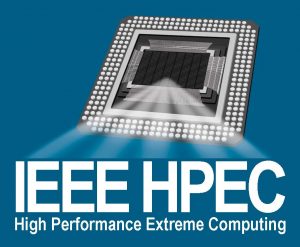
The 28th Annual IEEE High Performance Extreme Computing Conference (IEEE HPEC), organized by MIT in collaboration with SIAM, has recognized Malik Lechekhab, Dr. Dimosthenis Pasadakis, and Prof. Olaf Schenk with the Outstanding Paper Award for their contribution, Multilevel Diffusion-Based Spectral Graph Clustering. The proposed method leverages diffusion principles to minimize the normalized cut in graphs, achieving high-quality partitions within a multilevel framework, while eliminating the need for computationally expensive eigenpair computations. The awarded paper is available here.
Award for CI researchers and collaborators at the ACM Swiss Platform for Advanced Computing Conference 2024
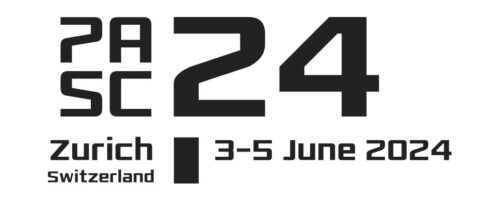
The Advanced Computing Group, in collaboration with Integrated Systems Laboratory from ETH Zurich has won this year’s best poster prize at the Platform for Advanced Scientific Computing (PASC) conference, which was held from June 3 to 5, 2024 in Zurich, Switzerland.
The annual conference serves as an interdisciplinary platform for the exchange of knowledge in computational science with a focus on methods, algorithms and applications in the context of high-performance computing.
The poster titled “Fast and Scalable Algorithms for Selected Matrix Inversions” by L. Gaedke-Merzhäuser, V. Maillou, A. Ziogas, M. Luisier and O. Schenk, proposes GPU-accelerated distributed memory implementations for performing selected matrix inversions. The authors propose an algorithm that circumvents the computation of the entire dense inverse of a sparse matrix, but focuses on the selected entries of interest. They showcase the application of their algorithms to problems in Bayesian statistics and quantum transport.
Award for CI researchers and collaborators at the IEEE Swiss Data Science Conference

The Advanced Computing Group at the Institute of Computing in collaboration with Deloitte Financial Services (Zurich) has achieved with a best poster award a significant recognition at the IEEE SDS 2024 conference held in Zurich on May 30 - 31 2024. The IEEE Swiss Conference on Data Science (SDS) is the most important Swiss conference for applied data science. It is regarded as one of the leading conferences in the field of Data Science by IEEE. Congratulations on this remarkable achievement!
In the paper it is shown that the accuracy of classification algorithms in detecting fraudulent financial activity is critical in assisting human analysts in the task of preventing financial crime. The authors consider financial transactions in the form of a directed graph, and propose a Graph Neural Network (GNN) model for the identification of money laundering activity. More information on the paper on "GAMLNet: a graph based framework for the detection of money laundering" by Julien Schmidt (CI/USI), Dimosthenis Pasadakis (CI/USI), Madan Sathe (Deloitte, Switzerland), and Olaf Schenk (CI/USI) is published here.
Prof. Olaf Schenk and collaborators win bi-annual SIAM Supercomputing Best Paper Award for 2024

The Institute of Computing's Prof. Olaf Schenk collaborated with co-authors Christie Alappat, Achim Basermanm, Jonas Thies, Alan R. Bishop, Holger Fehske, Georg Hager, and Gerhard Wellein on a paper titled "A Recursive Algebraic Coloring Technique for Hardware-efficient Symmetric Sparse Matrix-vector Multiplication" (June 2020).
This paper, highly cited over the past years, has now received the prestigious 2024 SIAG/Supercomputing Best Paper Prize from the Society for Industrial and Applied Mathematics (SIAM)!
Instituted in 2015, this prize recognizes the author or authors of the most outstanding paper in the field of parallel scientific and engineering computing published in English in a peer-reviewed journal.
The SIAM Selection Committee commends the authors for introducing a novel algorithm that significantly surpasses previous methods in solving the long-standing graph coloring problem.
Paper published at: https://dl.acm.org/doi/10.1145/3399732
Outstanding short paper award for CI at IEEE HPEC 2023
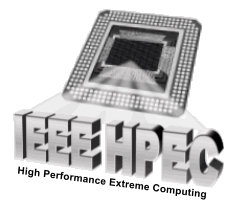
The 27th Annual IEEE High Performance Extreme Computing Conference IEEE HPEC, organized by MIT in cooperation with SIAM, has awarded Dr. Dimosthenis Pasadakis and Prof. Olaf Schenk with the Outstanding Short Paper Award for their work Nonlinear Spectral Clustering with C++ GraphBLAS. They collaborated with Dr. Verner Vlacic, and Dr. Albert-Jan Yzelman from the Huawei Zurich Research Center to develop a nonlinear spectral clustering algorithm that produces high quality graph cuts and is applicable to large-scale data for shared-memory machines. The conference is sponsored by the IEEE Boston Section, and its online proceedings can be found here. Congratulations!
Students from USI and ETH Zurich visiting CSCS
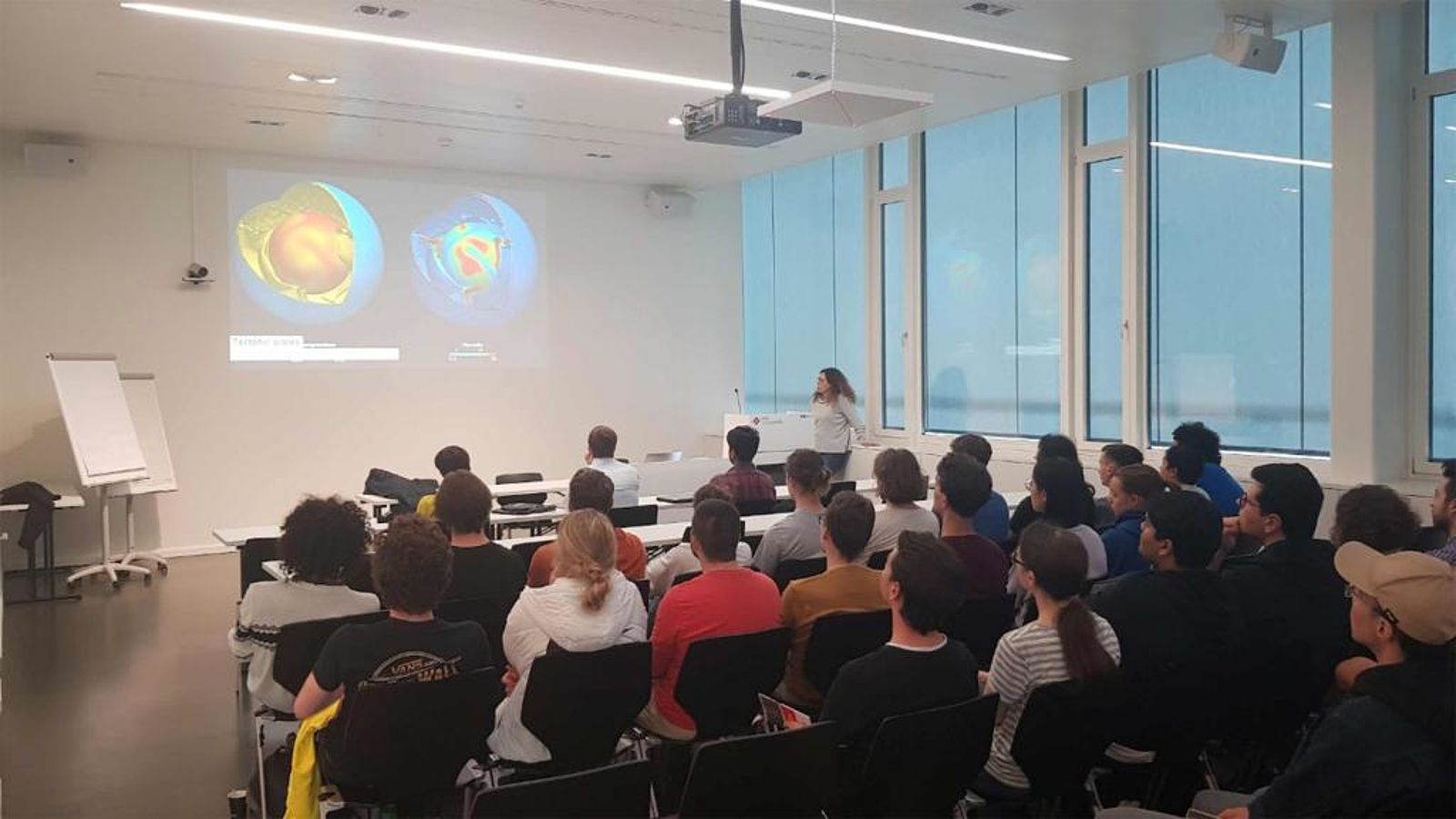
Prof. Olaf Schenk and the Institute of Computing (CI) had the pleasure of inviting a group of 80 bachelor's and master's students from USI and ETH Zurich to visit the Swiss National Supercomputing Center in Lugano-Cornaredo on 12 October.
The students were welcomed by Dr Maria Grazia Giuffreda, associate director, who gave a presentation of the centre prior to the visit. She gave an overview of some of the 153 projects carried out last year with the help of the CSCS supercomputers.
After this introduction, Sebin John, a master's student in software and data engineering at USI, filled the audience with his enthusiasm and shared his experience as a research intern at CSCS where he developed distributed visualization software in Julia. The students were all ears when Timothy Holt, PhD candidate in high-performance computing, gave a speech on how supercomputing can help with the European energy crisis.
The group was then led into the spacious computer centre facility where they were able to approach supercomputers such as Piz Daint, once the most powerful machine in Europe, or the ultramodern Alps. The participants also gained insight into the impressive technical infrastructure essential for water-cooling the supercomputers. The many questions and discussions between the participants and the staff continued over coffee in a relaxed atmosphere.
CI Researcher shows how mathematics can help AI in biomedicine
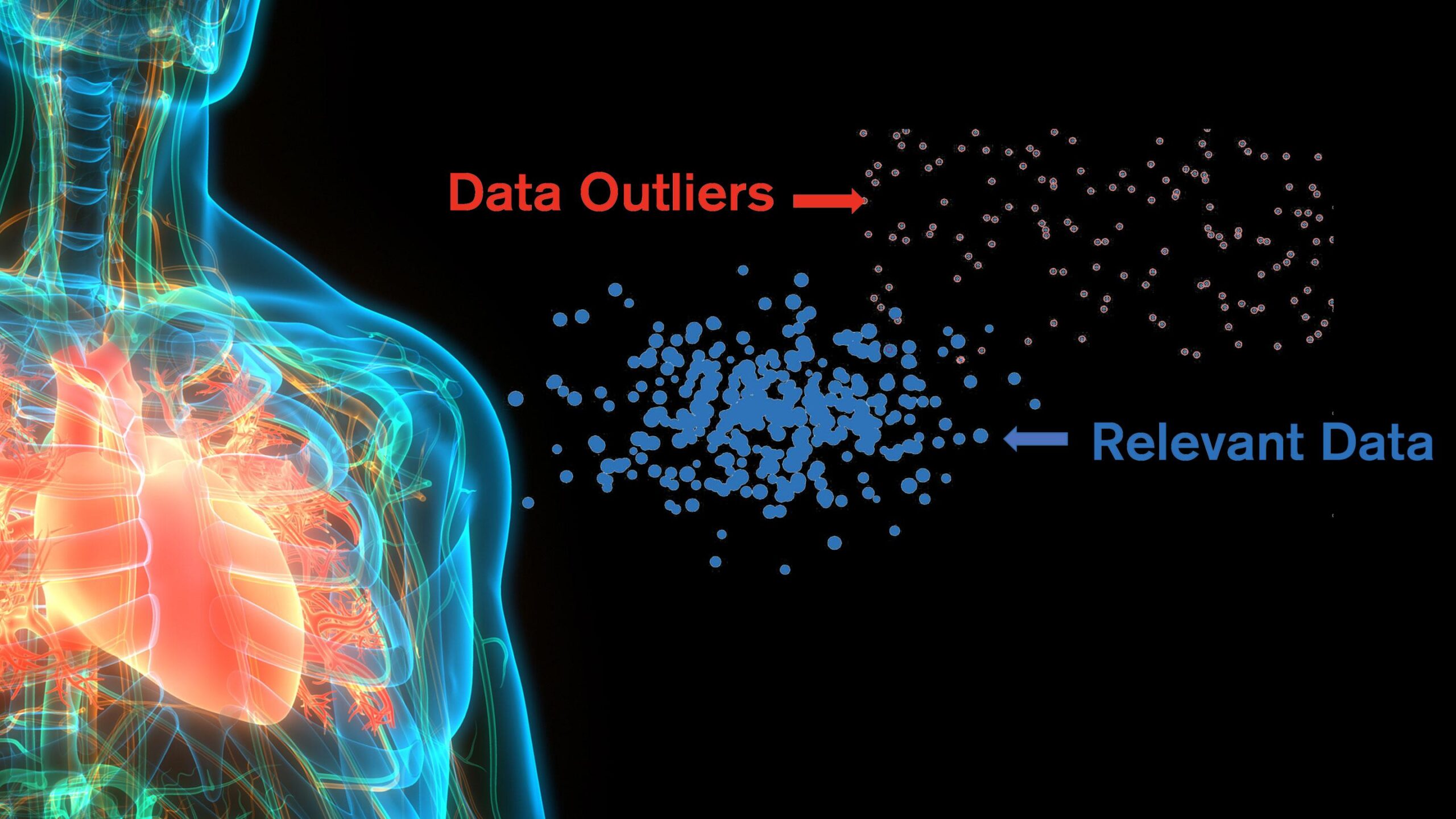
At the USI Institute of Computing (Faculty of Informatics), Prof. Illia Horenko has devised a robust unified model learning strategy based on new and very efficient solutions to traditional mathematical and statistical problems, opening to significant developments in fields such as healthcare. His work is published in PNAS, the official journal of the National Academy of Sciences.
The idea behind the computational strategy proposed by Prof. Horenko, called Entropic Outlier Sparsification (EOS), is to improve learning from data and the accuracy of predictions when in presence of data anomalies and outliers by exploiting the potential of novel math-driven learning and mathematical methods. A field with huge potential for adopting this sort of strategy is that of biomedicine and healthcare. For instance, large yet unraveled potential of such methods is in improving diagnostics of cardiovascular diseases.
The article: Cheap robust learning of data anomalies with analytically-solvable entropic outlier sparsification is available online at: www.pnas.org/content/119/9/e2119659119
Here in Ticino - the European HPC master's program will develop new experts equipped for the supercomputing revolution, writes Ticino Scienza
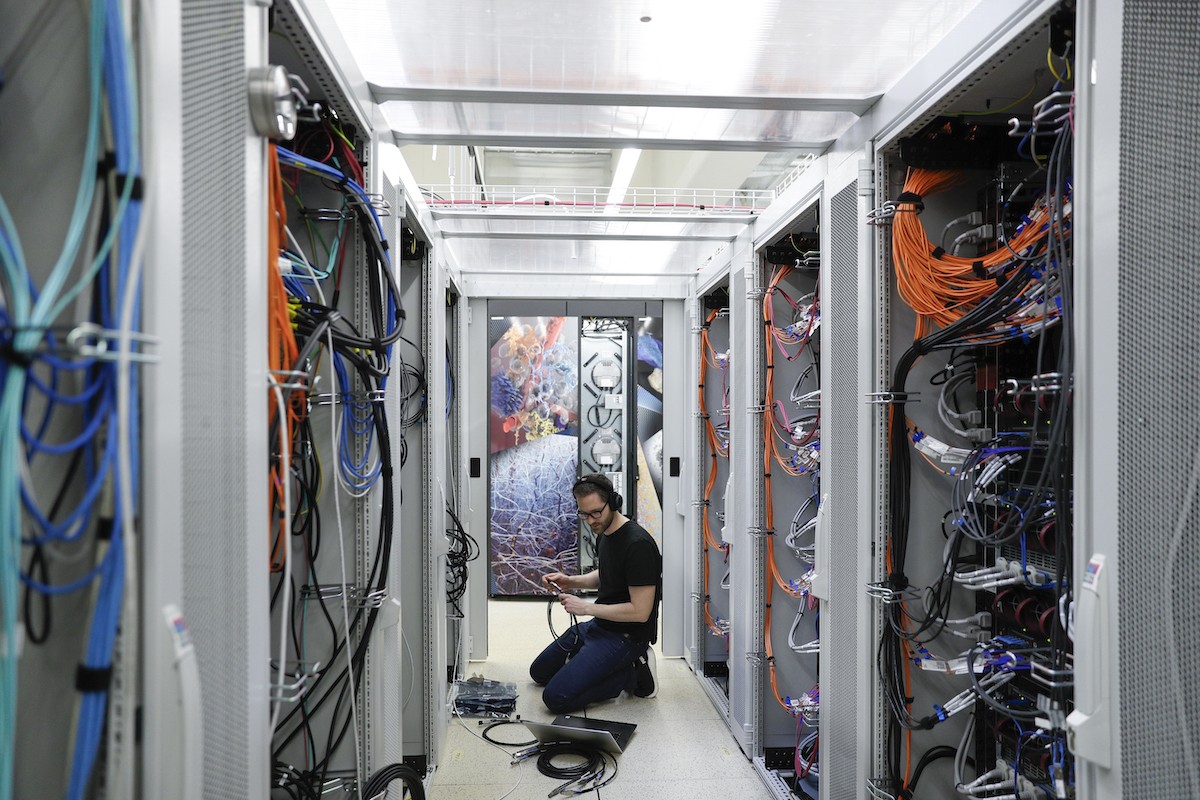
USI, together with ETH Zurich, The Swiss National Super Computing Center (CSCS), and 6 other European universities, will launch the new European HPC master's program supported by EuroHPC in 2022. This cutting edge master's program was recently featured in an article in Ticino Scienza. The article explains how this new partnership will help develop world class talent in the critical areas of high-performance computing and computational science, which will be key drivers in the European digital transformation. Aside from being strategically important for Switzerland and particularly Ticino, the article cites, this new sector is rapidly expanding, and could potentially draw additional high-value economic activity to the region.
USI joins the first European Master's programme in HPC

A consortium of European partners led by the University of Luxembourg has been selected by the EuroHPC Joint Undertaking to design and implement the first pan-European High-Performance Computing (HPC) pilot Master’s programme. Università della Svizzera italiana is a member of the consortium that will offer courses from Autumn 2022 to provide students with outstanding career perspectives in the rapidly expanding field of HPC, High-Performance Data Analytics (HPDA), or Artificial Intelligence.
Olaf Schenk, Professor of Computer Science at the USI Institute of Computing comments: "This initiative will be integrated into the Master of Computational Science (MCS) at USI. Our graduate students will be fully supported by the project in terms of living costs, tuition fees, mobility costs, industrial internships, etc. It will give our MCS students access to a European network of leading universities active in the area of computing and data science. We will also receive funding for our CSCS-USI summer school, which this year had over 120 participants (students from USI, ETHZ, EPFL). The EU project also supports the creation of teaching material for High Performance Computing and Data Analytics courses". The EU-funded initiative is supported at USI by the Institute of Computing (CI) and the Computer Systems Institute (SYS) at the Faculty of Informatics. ETH Zurich and the Swiss National Supercomputing Centre (CSCS) are participating in the project as contributing university/center. ETHZ will also integrate some of the USI teaching courses within the ETH Master of Computational Science and Engineering.
With a total budget of 7 million euros, the consortium of European universities, research/supercomputing centres, and industrial partners will develop a higher education programme with the main objectives to (1) train students in areas such as the design, deployment, operation, and/or the use of current and future generation HPC and HPC-related technologies in Europe; and (2) to train experts skilled in driving HPC adoption and knowledge transfer in industry and academia in different strategic domains, thereby linking HPC activities in industry and academia.
While many university curricula include basic computer science and programming languages, education programmes today must be adapted to a rapidly developing HPC technology ecosystem. The curriculum of the HPC pilot Master’s programme will be designed in a modular structure to enable full or partial integration of the modules into new or existing Master’s programmes. The availability of HPC proficient data scientists, HPC application developers, and expert users, is a key factor that drives digital transformation in Europe and requires the training of highly skilled and talented graduate students.
Background
The consortium led by the University of Luxembourg consists of universities, research/supercomputing centres, industrial and SME partners, and additional supporting partners. Eight universities will initially be awarding degrees: University of Luxembourg, Universitat Politècnica de Catalunya, Politecnico di Milano, Friedrich-Alexander-Universität Erlangen-Nürnberg, Sorbonne Université, Sofia University St. Kliment Ohridski, Università della Svizzera italiana, Kungliga Tekniska Hoegskolan). It was selected following the call for proposals EuroHPC-2020-03 "Training and Education on HPC", which was launched in March 2021, as the last R&I call of the EuroHPC JU within the 2014-2020 Multiannual Financial Framework.
About the EuroHPC JU
The EuroHPC JU was established by Council Regulation (EU) 2018/1488 in 2018. 29 European countries are currently taking part in the initiative and pooling their resources with the EU and private partners to enable the EU to become a world leader in supercomputing. The mission of the EuroHPC JU is to develop, deploy, extend and maintain an integrated world-class supercomputing and data infrastructure in the EU and to develop and support a highly competitive and innovative HPC ecosystem. More information can be found on the EuroHPC JU’s website
The 2021/22 USI-FAU double degree program in Computational Science has kicked off!
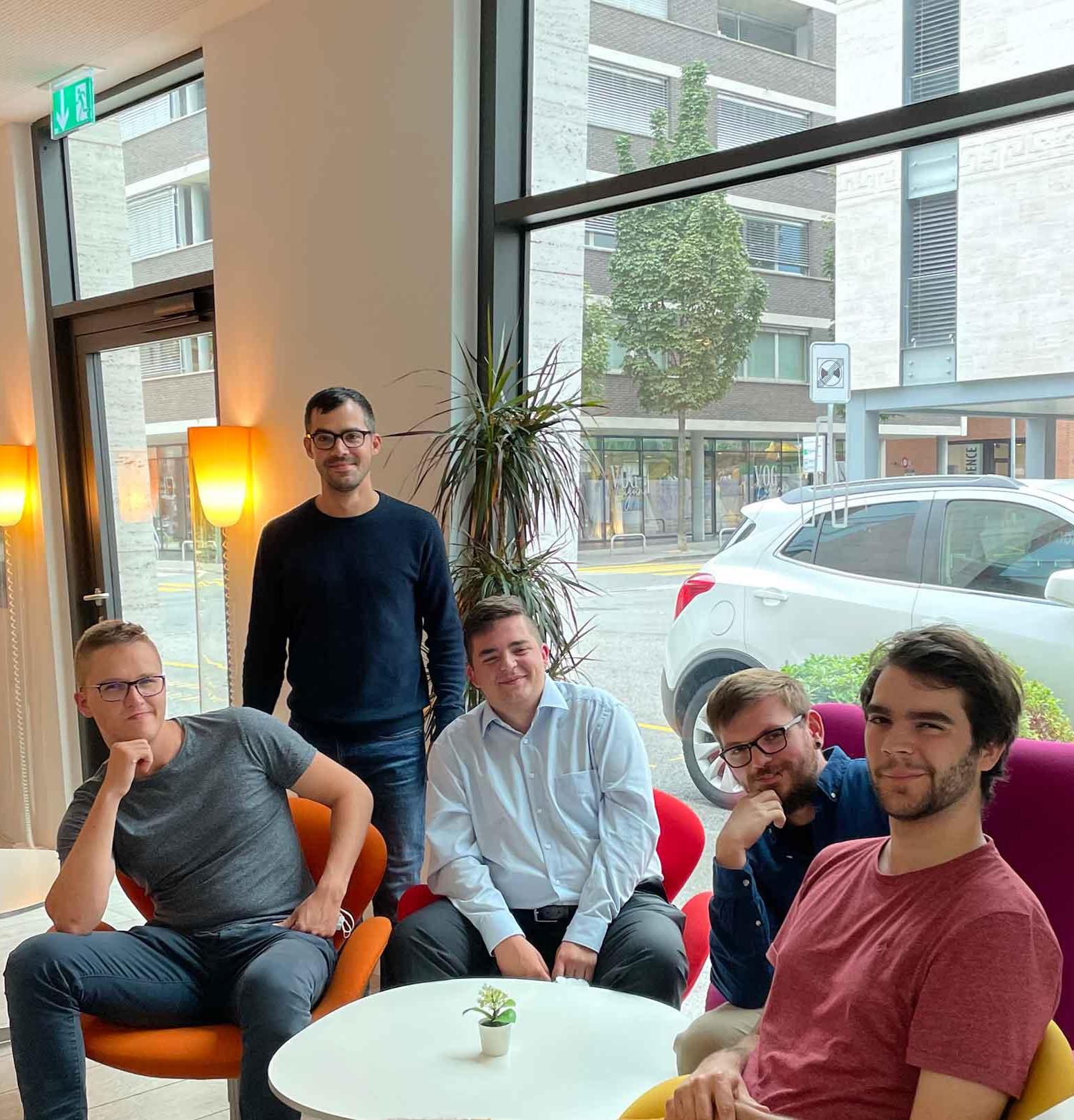
At the end of September a delegation of faculty members and students from Friedrich-Alexander-Universität Erlangen-Nürnberg (FAU) visited Lugano to celebrate the launch of the Double Degree Program in Computational Science and Computational Engineering between USI and FAU for the academic year 2021/22. This is the second year that the Double Degree Program is organised at USI.
The itinerary included a tour of the facilities available to students on the new USI East Campus, as well as a visit to Lugano and Gandria, and a hike up the Monte Bré. The visit concluded with a welcome event where students had the opportunity to meet each other, learn more about the double degree program, and each of the host universities.
The USI-FAU Double Degree Program offers participating students the opportunity to study in two world-class research institutions in the field of informatics and engineering, and live and experience the culture in two diverse regions of Europe. After three semesters of course work (2 at the host university, 1 at the partner university) and a Master’s thesis, the students are awarded a Master’s degree from each university. This year, there are 27 students enrolled in the double degree program and it is expected this to keep growing in the coming years as the word spreads.
Michael Zideki from Erlangen was very enthusiastic about his double degree, saying it is "a unique opportunity to get different perspectives on your studies". Adding to that, one of this year's Master in Computational Science students at USI, Nicola Esposito, says, "the double degree fully meets my expectations. Together with the FAU classmates we also had a great kick-off gathering and enjoyed meeting other students of this program, which was refreshing and useful!".
For information about the program: www.usi.ch/en/education/master/computational-science/double-degree
Doctoral Exam of Aryan Eftekhari

Aryan Eftekhari, a former PhD student in the Advanced Computing Lab in CI, successfully passed his oral doctoral thesis examination entitled: "Scalable Algorithms for High-Dimensional Graphical Lasso and Function Approximation". Congratulations! Aryan will be continuing at CI as a postdoctoral researcher in collaboration with Prof. Simon Scheidegger at the University of Lausanne starting from October 2021.
Doctoral Exam of Radim Janalík
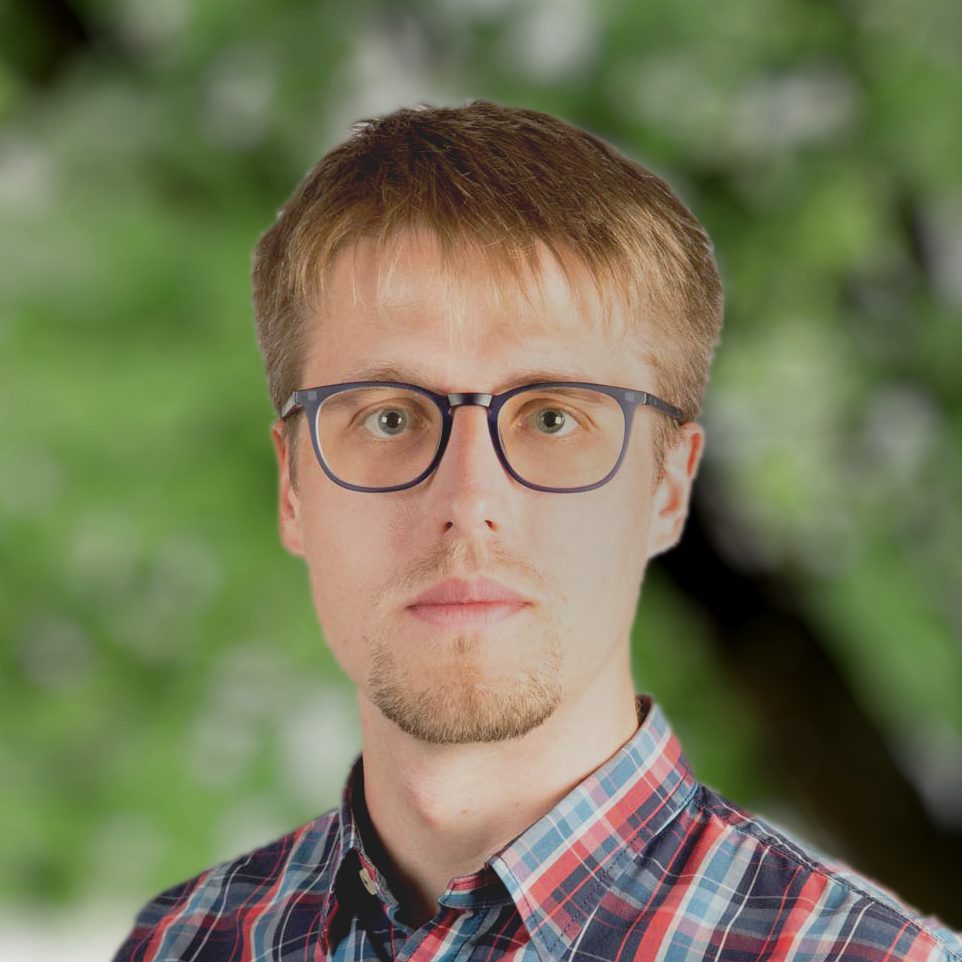
Radim Janalík, a former PhD student in the Advanced Computing Lab in CI, successfully passed his oral doctoral thesis examination entitled: "Node-Level Performance Modeling of Sparse Factorization Solver". Congratulations! Radim will be starting a new position as Infrastructure Engineer at NNAISENSE in Lugano starting September 2021.
The CSCS-USI Summer School is going digital again in 2021
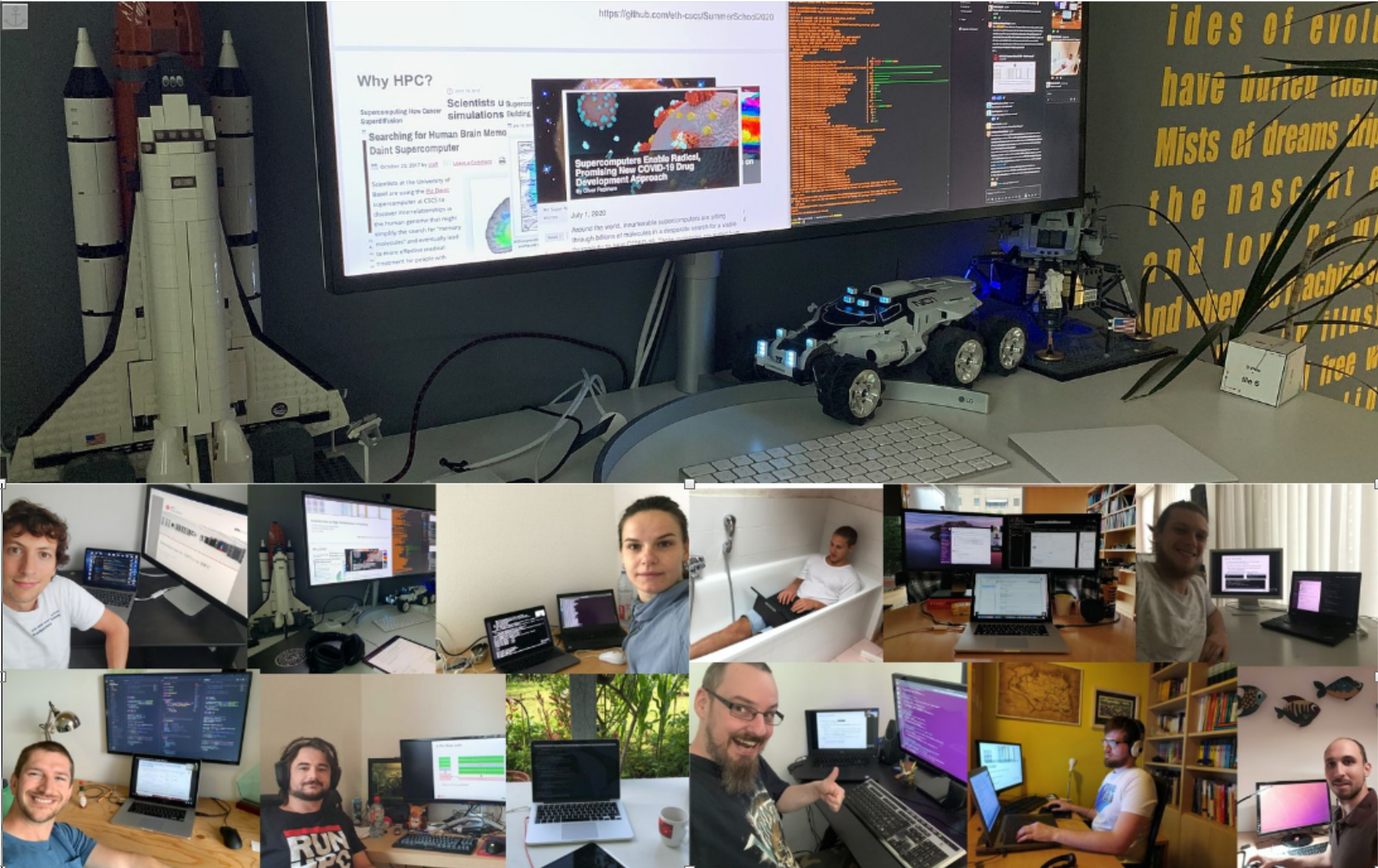
Building on last year’s successful experience and in order to support an extended audience of students in their learning process, the Swiss National Supercomputing Centre (ETH Zurich / CSCS) and Università della Svizzera italiana (USI) have decided to hold the annual Summer School as an online course again this year. The school will be held from July 19 to 30, 2021.
The program will focus on the effective exploitation of state-of-the-art hybrid High-Performance Computing (HPC) systems with a special focus on Data Analytics. Deadline for applications: April 25, 2021.
The content of the course is tailored for 3rd year Bachelor’s students, Master’s students, Ph.D students, and early stage Postdocs interested in learning parallel programming models and having hands-on experience using HPC systems. Additional information on the Summer School 2021 program, course structure, examination methodology and application can be found at the following link >



